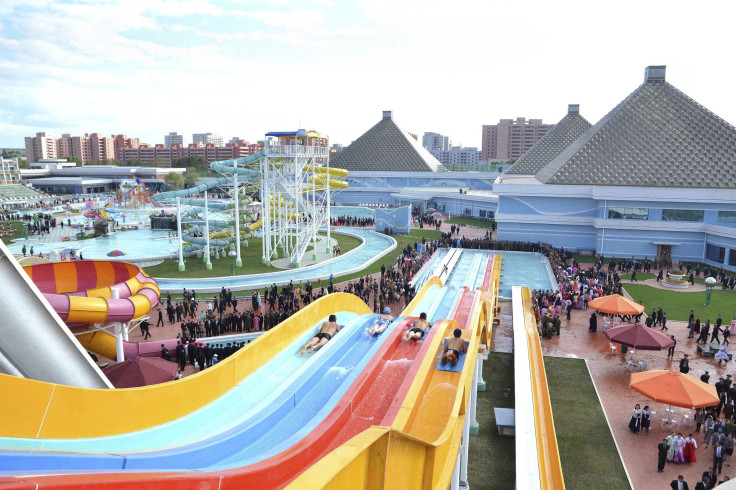North Korea Tourism: Pyongyang Reportedly Looks To Boost Industry With ‘International’ Summer Fair

North Korea is looking to boost tourism this summer by hosting an international fair in May, according to TTG Asia. The event reportedly is slated to take place in the Mount Kumgang Tourist Region, a scenic area near the border with South Korea opened to South Korean travelers since 1998.
The logistics of North Korea’s supposed international fair are unclear. “We are waiting for the final information on what exactly can be expected,” Simon Cockerell, general manager of Beijing-based Koryo Tours, one of the few tourist companies allowed to operate in the isolated, tightly controlled state, told TTG Asia. “They have not had a tourism fair like this before.” The resort where the fair is expected to take place opened in 1998 and was meant to symbolize a softening of tensions between the North and South.
Tourism in North Korea is organized by a handful of state-operated tourism bureaus. The government closely monitors the operations, meaning planning a trip there can be difficult. North Korea has never been a popular destination with Western tourists -- only about 1,500 Westerners visited North Korea every year in the early 2000s, according to the BBC -- but that has begun changing in recent years. In 2009, Western tourism to North Korea jumped to between 4,000 and 6,000 visitors, the Los Angeles Times reported last year.
"This idea of a country that no one is really allowed to visit always fascinated me," Cyrus Kirkpatrick of Culver City, who has visited North Korea twice, told the Times. In 2014, Pyongyang launched a travel website highlighting places to visit in North Korea, including a pyramid-themed water park, a ski resort and cultural tours of the country’s capital.
The U.S. government does not outright ban traveling to North Korea, but strongly advises against it. Several high-profile cases of Americans being detained in North Korea have further spurred warnings from the U.S. government about the dangers of traveling to the peninsula.
© Copyright IBTimes 2024. All rights reserved.






















